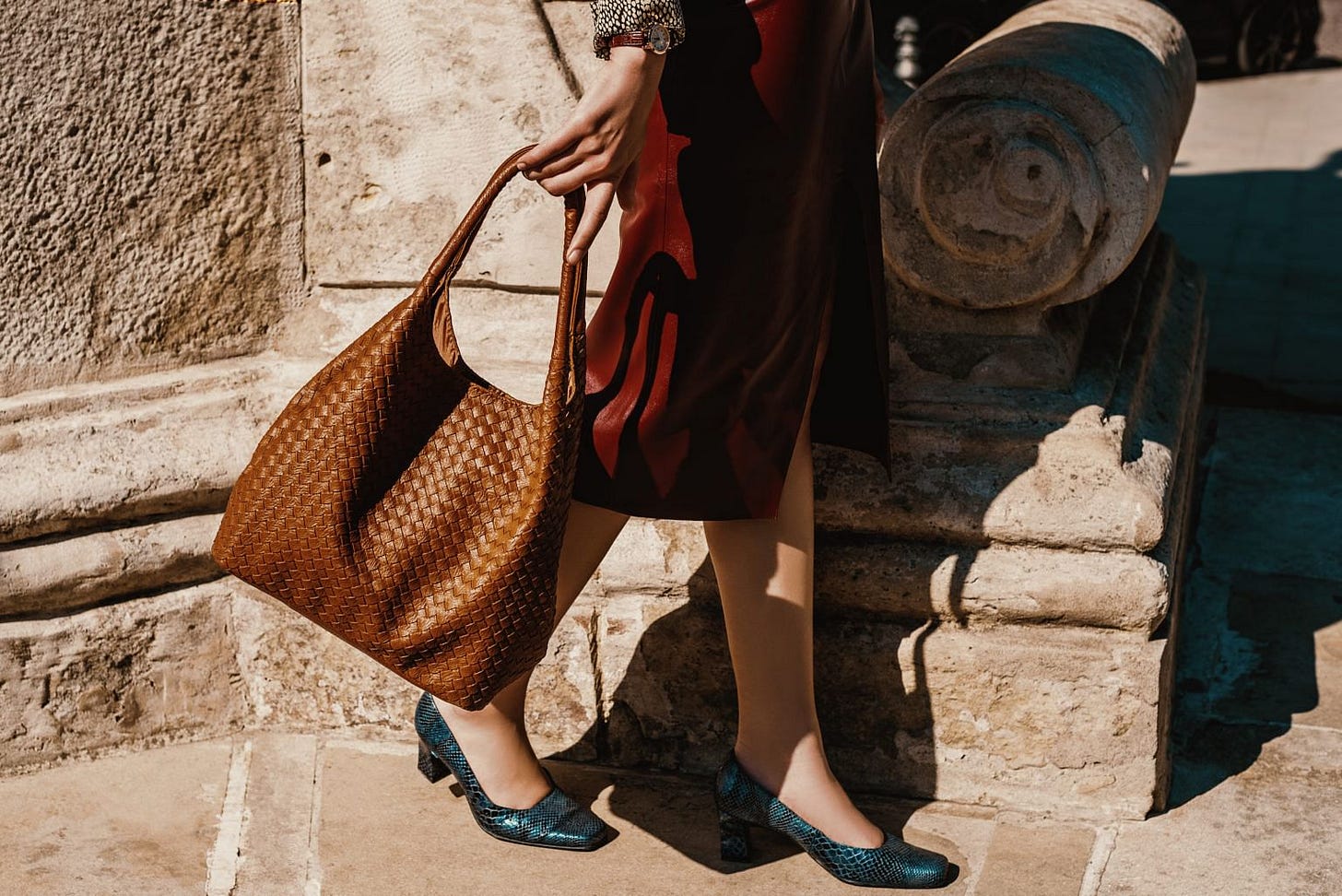Vegan Leather - How Bad is it?
The demand for 'vegan' alternatives to leather has skyrocketed in recent times. The vegan leather market is set to be worth $85 billion globally by 2025, according to a report by business consultancy Grand View Research (GVR). And you know things are going super ‘mainstream’ once Ferrari and Telse start replacing their leather seats with vegan leather ones.
But as demand for vegan leather grows, a small cottage industry has been rising in parallel - exposing the so-called 'dark side' of vegan leather. This angle, mostly explored in blogs and video posts, claims that we should be hyper-aware that vegan leather is plastic. (Usually made from one of two plastic polymers; polyurethane (PU) and polyvinyl chloride (PVC)).
Yes, in case you didn't know. There is no such thing as 'artificial’ leather. It is just plastic, made to look and feel like leather.
PVC (the same stuff that makes pipes) requires extensive chemical treatment to make it soft and pliable, like leather. These chemicals tend to 'leech' out of the plastic in time. These chemicals are harmful, whether they 'leech' onto your skin or to the environment once you throw the product out.
PU is safer but far more expensive to make and requires a fabric backing to give that soft feel. But no plastic is 100% safe or good.
So should you buy vegan leather products at all? Yes, you should - but rarely.
What about leather?
"An animal decomposes when it's natural. But after all of the chemical treatments to a leather handbag, it isn't going to decompose in your wardrobe. That product is staying alive because of the chemicals that have been put on it—because if you just had a dead animal in your closet, it would be a very different situation."
That's what Stella Nina McCartney, the well-connected English fashion designer (whose father is Sir Paul McCartney), told Vogue in 2018. The fiery answer was in reaction to the all too common complaint against vegan leather - it is essentially non-decomposing plastic.
But her point is fair. Even if we ignore the ethical questions around the slaughter of millions of animals every year to make leather, the leather itself is not a 'natural' product. It requires many chemical processes and coatings to ensure it stays as 'leather' and doesn't just rot like any dead skin would. So in terms of manufacturing as well, leather is not the 'better' choice.
However, just if you wish to buy something in leather, let that be your last purchase of that product in leather. Remember, one of the significant advantages of leather is that (with proper care and maintenance) it can last a lifetime.
So if you don't want the vegan plastic leather, the least you can do is make sure that belt, shoe or bag lasts so long, you don't need to keep buying more and more leather. It is a better choice.
In any case, the vegan leather industry is itself creating alternatives that are not plastic. For example, in Kerala, there is a company trying to make vegan leather from coconuts. So change is just around the corner, and this debate will end soon - naturally.
Regards,
Vinayak Hegde
Watch: This Innovation Peels Coconut In 40 Secs, Wins Rs 25 Lakh
More Awesome News From The World of Sustainability:
- Coconut shells: What would you usually do once you have scraped out the coconut flesh? Discard them? Why not use them as planters and get your own microgreens going. Seetha Anand Vaidyam, who works at Ananda Foundation for Holisitic and Healthy Learning and Living, is a wellness coach, teacher-trainer, and an author, who shares hacks.
- Rishabh Prashobh (14) a class IX student of the National Academy For Learning, Bengaluru, has launched the Jal Mission and saved 70 lakh litres of water in a year. How? By installing aerators! These devices can save up to 1,274 litres of water a month.
- When you think of vegetable and fruit markets in India, you’re often met with messy visuals of vegetable shavings trampled on the floor, bustling crowds and bargaining vendors. The foul smell of leftover and damaged produce lying on the ground is not only unpleasant but also amounts to tonnes of waste generated at the end of the day. But, at the Bowenpally fruit and vegetable market in Hyderabad, the vegetable waste generated is used to power street lights and shops.
3 Things Making us Proud to be Indian This Week:
- Instead of buying a completely new two, three or four-wheeler, here in India we can explore the option of converting our existing vehicle into an electric one. These 4 startups can make it happen.
- Launched by JRD Tata at the request of Nehru, Lakmé was India’s first made-in-India makeup brand that found its genesis in aftermath of our Independence from the British Raj. So, how did this desi brand, which has an international air about it, capture the Indian market and make cosmetics affordable for middle-income households? It’s quite a fascinating tale.
- Padma Yangchan and Jigmet Disket represent a new generation of Ladakhi entrepreneurs. Coming from relative privilege, these young women see themselves as not only preservers of culture and heritage, but also and more importantly, as creators of wealth reminiscent of a time when Ladakh was an integral part of the global ‘silk route’.
More Inspiration From The Better India Family:
Thanks for reading! Do follow us on Facebook | Twitter | Instagram | YouTube.
For any feedback, comments or just to say hello, you can reach us at contact@thebetterindia.com
Cheers!






